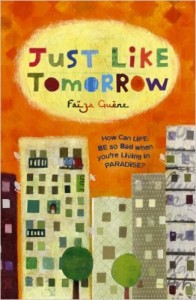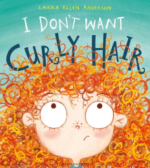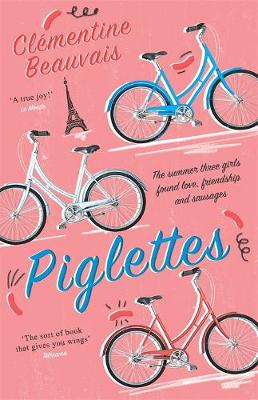 Faïza Guène
Faïza Guène
(Definitions)
Kiffe kiffe demain, translated by Sarah Adams
Doria is fifteen, a beur (French of Arabic descent) living in a soulless high rise in suburban Paris. Painfully shy, struggling at school, obsessed by TV programmes, she lives alone with her illiterate mother after having both been abandoned by their violent good for nothing father who has gone back to Morocco to find a younger and more fertile wife. Life hasn’t been kind to her, yet she chooses to focus on the happy things in her life: her beloved mother, who takes everything in her stride; Sarah the little girl she babysits; Hamoudi who hangs around on the estate and claims he has known her since she was ‘smaller than a block of hash’; even Mrs Burlaud, her psychologist, despite her being partial to alcohol. And when you hold on to happy things, happiness and hope have a way of making their way to you.
This is a poignant, brutally honest depiction of poverty in the estates of la banlieue, which does not shy away from the reality of life for many first generation French Muslim teenage girls. Faïza Guène, herself of Algerian descent, was not much older than Doria when she wrote the book. Doria’s blunt musings, smart observations and wry humour reveal the reality of her life with the everyday racism she encounters, the Muslim bigotry she witnesses, misogyny and the heartbreaking treatment of women, the growth of radicalism, the shame felt by need to ask for handouts, credit and relying on those to survive. But where there could easily be despair and hopelessness, Guène chooses to focus on hope, and redemption: her mother’s inspiring emancipation through literacy; Hamoudi turning his life around in the most unexpected way, and Doria, finding her own way, finally. Doria’s voice is one of the most unique I have read in a long time and it is impossible not to love her. It is an astounding piece of writing, and a tour de force of translation from Sarah Ardizonne (née Adams) who has had to recreate the slang of the banlieues for English speaking audiences. Yes, some references to French popular culture might be lost on British readers, but this is an flawless piece of fiction and a great insight of what life is like for teenagers in other European countries. It might have been written ten years ago, but it has never felt more current.
Buy a copy of Just Like Tomorrow her
Source: personal copy






